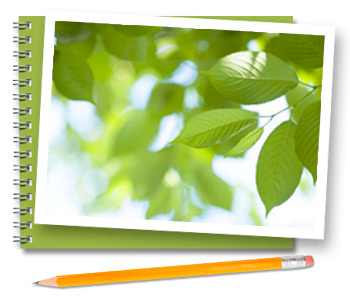



Loading...
Why Are Gardens & Landscaping Important?
 Gardens and trees play an important role in beautifying the landscape, preventing erosion, and absorbing harmful pollution like carbon dioxide. The quantity of plants and trees directly affect water and air quality. They minimize effects of natural disasters such as flooding, landslides, and hurricanes. Plants can prevent erosion, a particular problem across Florida’s beaches. Besides all these quantifiable benefits, plants provide beautiful views that are aesthetically pleasing and relaxing.
Gardens and trees play an important role in beautifying the landscape, preventing erosion, and absorbing harmful pollution like carbon dioxide. The quantity of plants and trees directly affect water and air quality. They minimize effects of natural disasters such as flooding, landslides, and hurricanes. Plants can prevent erosion, a particular problem across Florida’s beaches. Besides all these quantifiable benefits, plants provide beautiful views that are aesthetically pleasing and relaxing.
About Gardens & Landscaping
Not all plants are created equal. It was commonly thought that as long as you’re planting something, it’s good for the environment. Wrong! We now know there are rules to gardening and landscaping. Words like “native plants” or “exotic species” are becoming more popular as people gain awareness. Floridians are conscience about the amount of water they use outdoors, to save money and resources for future generations. Becoming knowledgeable about appropriate plants, irrigation practices, and the programs available to help can save you money, reduce maintenance efforts, and preserve the environment.

Schools In This Category »
Irrigation Practices
Florida goes through extremely wet and dry cycles. Even though it rains almost every day in the summer, in the winter, fall and spring, we can go for weeks without a single drop! That makes proper irrigation extremely important. Many counties have restrictions on which days homeowners are allowed to water their lawns. However, sometimes it isn’t necessary to water - even on that day. Overwatering depletes water resources and keeps the top layer of soil wet, encouraging plants to develop weak, shallow roots. This creates weak plants and turf incapable of withstanding hot or dry weather. The most efficient irrigation systems are drip systems, which deliver water directly to roots.
Native Species
Native plants are those that are adapted for the environment in which they evolved, meaning they require less maintenance - such as watering and fertilizing. They have grown through time to be able to handle seasonal changes like drought and cold, and even hurricanes. Local plants and animals are dependent on native species for food, shelter, and reproduction.
NatureScape
Florida Yards and Neighborhoods, Florida-Friendly Landscaping, and Broward County’s NatureScape, are all programs across Florida that share a common vision. The goal is to have all yards landscaped with native plants that conserve water, protect water quality, and create wildlife habitat. If we each do our part, we can return what we have taken from Florida’s wildlife, while enhancing the resources we all share, such as water.
Creating a Florida-friendly yard is no more expensive than the alternative. Broward County’s NatureScape Web site provides instructional videos, native plant lists, maintenance practices, and much more. Besides the benefits of water conservation, you can create wildlife viewing opportunities for you and your family.
Outdoor Classrooms and Facilities
Student Gardening Activities
What Broward Schools Are Doing
Broward Schools have passed an ordinance that allows only native vegetation to be planted on school campuses. The only exception to this rule are butterfly and vegetable gardens planted by students for learning purposes. The District, with 284 campuses to landscape, is doing it's part. Here are just a few of the initiatives we are engaged in:
- Develop school campuses as environmental learning resources.
- Incorporate Naturescape principles - over 40 BCPS schools are Naturescape certified!
- Promote environmental education outreach and partnering.
- Support native habitat restorations.
- Use Horticulture Best Management Practices (BMP) for maintenance.
- Promote butterfly, herb, and vegetable gardens on school sites.
- Promote irrigation efficiency, management, and accountability.
What You Can Do
- Plant native species. Many local programs exist which can guide you in choosing an array of beautiful native species based on the climate zone in which you live.
Learn about Natives for Your Neighborhood by visiting:
http://www.regionalconservation.org/beta/nfyn/default.asp
- Have a Florida-friendly yard! Take classes with the University of Florida’s Florida-Friendly Landscaping program.
Find out more about creating a Florida-friendly yard by visiting:
http://solutionsforyourlife.ifas.ufl.edu/lawn_and_garden
- Compost. You can create nutrient rich soil for your plants on site and reduce your waste at the same time!
- Skip a watering cycle. Every drop counts!
- Get a rain gauge. Often you can get these instruments for free through the county water department.
- Speak Up! If you see your neighbors water on an “off” day, tell them!
- Educate yourself. Learn about Florida best Management Practices (BMP). BMPs cover four major areas: nutrient management; pest management; water management; and sediment management. Find out more by visiting:
http://bmp.ifas.ufl.edu
- Follow the rules. Know your watering regulations!
Find your watering regulations by visiting the South Florida Water Management District's site at:
http://www.sfwmd.gov
Remember, every drop counts!
Links
American Forest
http://www.americanforests.org/
Broward County NatureScape Program
http://www.broward.org/naturescape/
Center for Aquatic and Invasive Plants
http://plants.ifas.ufl.edu/node/22
Florida Division of Plant Industry
http://www.doacs.state.fl.us/pi/pubs.html
Florida-Friendly Landscaping Program
http://fyn.ifas.ufl.edu/
Florida Native Perenials and Annuals
http://www.nsis.org/garden/garden-native-annuals.html
Florida Native Shrubs
http://edis.ifas.ufl.edu/EH159
Florida Natural Areas Inventory
http://www.fnai.org/
Florida Outdoor Classrooms
http://myfwc.com/learning/Learn_SchoolyardWildlife.htm
Florida School Gardens
http://gardeningsolutions.ifas.ufl.edu/schoolgardens/school_gardens/index.shtml
Friends of the Florida Panther Refuge
http://floridapanther.org/
Natives for You Neighborhood
http://www.regionalconservation.org/beta/nfyn/default.asp
Outdoor Classroom Facilities
http://www.fshs.org/Proceedings/Password%20Protected/1984%20Vol.%2097/227-230%20(FITZPATRICK).pdf
Plant Atlas
http://www.plantatlas.usf.edu/
Salt-tolerant Plants for Florida
http://edis.ifas.ufl.edu/EP012